The 12 Best Movies of 2020 (So Far) and Where to Watch Them

Maybe one of the few benefits of our current quarantine is that, rather than succumb to the reality that Sonic the Hedgehog by default makes it onto “Best of 2020” lists, the lack of major tentpole releases means our collective cultural consciousness has been freed up to give more attention to smaller films with otherwise dinkier distribution.
So, in calculating the empirically best movies of the year so far, we’ve done our best to provide links to sites and services where you can watch our recommendations, all while, we hope, pitching in to keep your local theaters afloat in these wretched times.
Still, so much is uncertain; we left off a few films we love, films such as My First Film and IWOW: I Walk on Water that are getting a lot of attention this year but titles that we, despite our efforts, can’t confirm will be “available” in the U.S. in 2020. Accordingly, too, we’re only considering U.S. distribution. Notably, some of these films are available outside the country, like The Wild Goose Lake, which is exclusively on MUBI in the UK.
Here are the best movies of 2020 so far:
The Assistant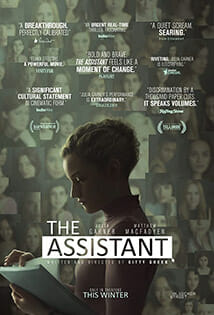 Release Date: January 31, 2020
Release Date: January 31, 2020
Director: Kitty Green
Stars: Julia Garner, Matthew Macfayden, Makenzie Leigh, Kristine Froseth
Genre: Drama, Thriller
Rating: R
Runtime: 87 minutes
The nameless, faceless boss hiding behind closed doors in Kitty Green’s exceptional The Assistant can be easily read as a Harvey Weinstein stand-in. The truth is that Harvey Weinstein isn’t or, now that he’s in prison, wasn’t the only man in the film industry with a habit of abusing his position and privilege by preying on women in his office, either through coercion or through brute force, he is, or was, the most notorious of them. So yes, The Assistant can be thought of as “the Harvey Weinstein movie,” but it really should be thought of as the best contemporary movie to act out patriarchal rape culture dynamics on screen.
Regardless, take Weinstein out of your interpretation of The Assistant and the film will still throttle you slowly, packing suffocating pressure into each of its 87 minutes. Green’s primary tool here is stillness: Static shots dominate the production, stifled frame after stifled frame, with the camera, manned by Michael Latham, often left hovering above Green’s star, Julia Garner, as if he means to leave space for her unanswered silent prayers to hang over her head. She plays the title’s long-suffering assistant, silent witness to her boss’s bullying and wanton lasciviousness, helpless to stop it. She spends the film unraveling over the course of a day, confronting her complicity in his sexual predation with no tangible hope of ending the cycle. Because there is no hope in The Assistant, no chance the film’s central evil will meet his punishment, or that the system built to facilitate his evil will collapse. What Green has done here is brutal and unsparing, but it’s also flawlessly made and necessary. —Andy Crump
Where to Watch: Available to buy April 28 on Amazon, Google Play, YouTube, iTunes and Vudu
Bacurau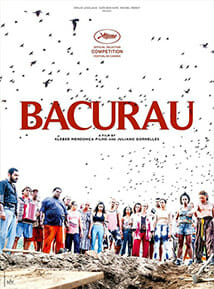 Release Date: March 6, 2020
Release Date: March 6, 2020
Directors: Kleber Mendonça Filho, Juliano Dornelles
Stars: Bárbara Colen, Thomas Aquino, Silvero Pereira, Sônia Braga
Genre: Drama, Science Fiction & Fantasy
Rating: NR
Runtime: 132 minutes
Brazilian directors Kleber Mendonça Filho and Juliano Dornelle’s Bacurau begins with a woman named Teresa (Bárbara Colen) being driven down a winding mountain road with sweeping swathes of lush greenery below. Suddenly, a splintered wooden casket appears in the middle of the asphalt. After the driver swerves to avoid it, there is another one. And another. Soon, broken caskets litter the entire road. The cause of the coffin calamity is revealed when Teresa sees that an open-back truck transporting caskets has collided into the mountainside, killing its passengers. The scene is oddly pleasant, though, as opportunists have quickly begun selling off the least damaged goods to a line of passersby, both seeming giddy about the exchange. Death is pervasive in the film, but it is often funny, and coincidentally Teresa is on her way to a funeral. Her grandmother—the beloved matriarch of Bacurau, a small Brazilian village where she grew up—has died. The entire town mourns her death, oblivious to the fact that their little village is slowly, literally, being erased from the face of the earth. Here, what has seemed like a horror film morphs into a weird Western that incorporates psychoactive flora, a seemingly benign history museum, and even an apparition or two. That’s not even counting the UFO. Bacurau is wildly creative, and its hilarious, Dadaist aura provides an uncanny comfort despite ample bloodshed. This is not to say that it’s without heart-wrenching loss and tearful contemplation of a world on fire. It’s clear that there is no space for moral ambiguity in this film. In reality, the Amazon is ablaze, rampant inequality festers and indigenous populations are displaced all for the net benefit of the ruling class. Bacurau is a long overdue neo-colonial revenge fantasy. —Natalia Keogan
Where to Watch: Available through Kino Lorber’s Virtual Screening Room, sharing proceeds with local, independent theaters across the country
Bloody Nose, Empty Pockets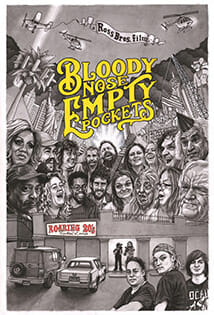 Release Date: January 24, 2020 (Sundance)
Release Date: January 24, 2020 (Sundance)
Directors: Turner Ross, Bill Ross IV
Genre: Documentary
Rating: NR
Runtime: 98 minutes
Songs of the soul flow from the drunken mouths of the jukebox-loving inebriates in Bloody Nose, Empty Pockets. The Ross brothers have created a prototype barroom experience: It is closing night for the fictionalized Roaring 20’s in Las Vegas, a real bar actually operating in their home base of New Orleans, and the regulars, led by local professional actor Michael Martin and otherwise populated with true bar-frequenting non-actors, have come together to kiss their favorite watering hole goodbye. Its much-discussed fictional framework is merely that—a framework—beneath which legitimate human interactions play out, with characters representing themselves and actually drinking the night away. There is authentic war vet commiseration and romantic longing, bartender-led singalongs and, inevitably, one guy trying to fight another “with eyes tattooed on his eyelids.” The holy trinity of dive bar life—despondency, frivolity and pugnacity—is present and spiritually enriching.
As always, the Ross bros depict those before their camera with the deepest care and respect. Pangs of regret and anguish sound between moments of hilarious drunken crosstalk, with Martin’s character pulling in close his younger, rambunctious four-eyed friend and imploring him not to likewise spend his life in a bar. The film runs the gamut of drunken night emotions, from wistful dancing to maudlin bouts of self-loathing, but the mood is never pinned to any specific emotion; it is less about one peak or one valley than it is about creating the shape of a waveform in itself. Yet each crest and trough is tinged with the fleeting feeling of the other: To be low is to be touched by the immense depth of drunken feelings, and to be high is to ride forth in embarrassing obliviousness. But somehow the images never whiff exploitation; they radiate a sense of humanity and an understanding of these American outcasts, who will surely flit from one closing bar to the next. What awaits them thereafter is a mystery, and perhaps a sad story we do not need to know. —Daniel Christian
Where to Watch: Not yet available, though we’re told there’s a “99%” chance the film will reach audiences this year
Emma. Release Date: March 6, 2020
Release Date: March 6, 2020
Director: Autumn de Wilde
Stars: Anya Taylor-Joy, Johnny Flynn, Bill Nighy, Mia Goth, Josh O’Connor, Callum Turner, Miranda Hart
Genre: Comedy, Romance
Rating: PG
Runtime: 132 minutes
Shot as though each frame were a frothy realist painting, scored as though it were a Chaplin-esque silent film and pulled together by a cast of comedically impeccable performances, Autumn de Wilde’s feature-length debut, Emma., is made up almost entirely of thrillingly executed moments. More comedy of manners than straight romance, both Jane Austen’s novel and de Wilde’s film take as their subject a happily single Emma Woodhouse (Anya Taylor-Joy), the “handsome, clever, and rich” mistress of an English country estate, as she fills her days as by mounting a series of ego-driven (if well-intentioned) matchmaking schemes. Signaled by the film’s opening in the soft dawn hours of the village’s latest Emma-orchestrated wedding day, these schemes have a history of being remarkably successful—successful enough, at least, that on one side, Emma has her co-dependent, doom-and-gloom father (a charming, if anxious, Bill Nighy) cautioning her not to start any schemes that might take her away from him, while on the other, she has the Woodhouses’ handsome family friend, Mr. Knightley (a refreshingly fiery Johnny Flynn), cautioning her against riding so high on her previous matchmaking coups that she starts an audacious scheme even she can’t pull it off. Beyond creating what would be a solid moviegoing experience in any context, the warm, boisterous sense of community this deep attention to detail works to build is, as Paste’s Andy Crump highlights in his thoughtful interview with de Wilde and Taylor-Joy, exactly what any 2020 take on a 205-year-old comedy of manners needed to cultivate. With our current cultural moment so defined by protracted digital isolation—and its cousin, anonymity-enabled cruelty—the best thing de Wilde’s Emma. could do was lean so hard into the sublimity of Austen’s original that, for the entirety of its gloriously phone-free two-hour runtime, its audience might feel, collectively, transported. —Alexis Gunderson
Where to Watch: Available for a 30-day rental ($19.99) on Amazon, Google Play, YouTube, iTunes and Vudu
First Cow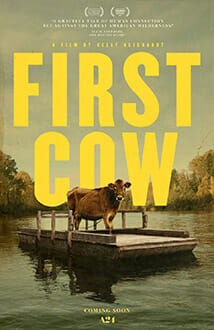 Release Date: March 6, 2020
Release Date: March 6, 2020
Director: Kelly Reichardt
Stars: John Magaro, Orion Lee, Rene Auberjonois, Toby Jones, Ewen Bremner
Genre: Drama
Rating: NR
Runtime: 121 minutes
Kelly Reichardt’s Oregonian ode to the human desire for comfort and friendship takes us back to the territory during the mid-19th century, when the economy of beaver pelts and gold rush hopefuls brought waves of migration to the area. A baker from Maryland, Otis “Cookie” Figowitz (John Magaro), finds himself amid a hostile group of fur trappers on the way to Oregon when he runs into King Lu (Orion Lee), a Chinese immigrant fresh on the run from scorned Russians. A fraternal bond between the two quickly materializes, and when a coveted dairy cow is brought to the territory by an English nobleman known as Chief Factor (Toby Jones), King Lu immediately recognizes that fresh milk combined with Cookie’s baking expertise could give the duo a unique trade in an area where the predominant sweet is a bland concoction of water and flour crackers. And so, in the dead of night, King Lu and Cookie leave the small shack they share with a metal pail in hand, sneaking through the pasture until they reach the dairy cow. Reichardt makes no moral judgement on them for stealing; the irony is that Cookie and King Lu’s act of theft is so small compared to the pillaging and exploitation that propelled America into an economic superpower in the first place. First Cow takes place when slavery was the main economic drive of the country, when Native Americans were facing genocide, when women were second-class citizens. First Cow will win most viewers over; it is funny in the most earnest way, with the beauty of friendship presented as the foundation of the film. Yet if the film wants to implore us to understand the essence of our species, its portrayal of burgeoning American capitalism is undoubtedly, jarringly, at odds with the nature of mankind. —Natalia Keogan
Where to Watch: A24 quickly pulled First Cow from theaters, but critical response has been glowing, so there’s plenty reason to believe the distributor darling won’t let it lose too much steam
The Invisible Man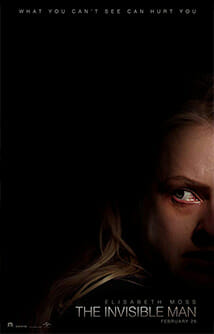 Release: February 28, 2020
Release: February 28, 2020
Director: Leigh Whannell
Stars: Elisabeth Moss, Oliver Jackson-Cohen, Harriet Dyer, Aldis Hodge, Storm Reid, Michael Dorman
Genre: Horror, Mystery & Suspense, Science Fiction & Fantasy
Rating: R
Runtime: 110 minutes
Aided by elemental forces, her exquisitely wealthy boyfriend’s Silicon Valley house blanketed by the deafening crash of ocean waves, Cecilia (Elisabeth Moss) softly pads her way out of bed, through the high-tech laboratory, escaping over the wall of his compound and into the car of her sister (Harriet Dyer). We wonder: Why would she run like this if she weren’t abused? Why would she have a secret compartment in their closet where she can stow an away bag? Then Cecilia’s boyfriend appears next to the car and punches in its window. His name is Adrian Griffin (Oliver Jackson-Cohen), and according to Cecilia, Adrian made a fortune as a leading figure in “optics” (OPTICS!) meeting the self-described “suburban girl” at a party a few years before. Never one to be subtle with his themes, Leigh Whannell has his villain be a genius in the technology of “seeing,” in how we see, to update James Whale’s 1933 Universal Monster film—and H.G. Wells’ story—to embrace digital technology as our primary mode of modern sight. Surveillance cameras limn every inch of Adrian’s home; later he’ll use a simple email to ruin Cecilia’s relationship with her sister. He has the money and resources to peer into any corner of Cecilia’s life. His gaze is unbroken. Cecilia knows that Adrian will always find her, and The Invisible Man is rife with the abject terror of such vulnerability. Whannell and cinematographer Stefan Duscio have a knack for letting their frames linger with space, drawing our attention to where we, and Cecilia, know an unseen danger lurks. Of course, we’re always betrayed: Corners of rooms and silhouette-less doorways aren’t empty, aren’t negative, but pregnant with assumption—until they aren’t, the invisible man never precisely where we expect him to be. We begin to doubt ourselves; we’re punished by tension, and we feel like we deserve it. It’s all pretty marvelous stuff, as much a well-oiled genre machine as it is yet another showcase for Elisabeth Moss’s herculean prowess. —Dom Sinacola
Where to Watch: Available for a 30-day rental ($19.99) on Amazon, YouTube, iTunes and Vudu
Never Rarely Sometimes Always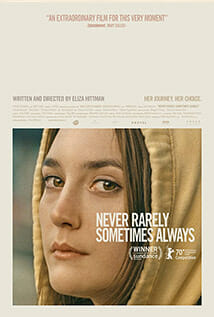 Release Date: March 13, 2020
Release Date: March 13, 2020
Director: Eliza Hittman
Stars: Sidney Flanigan, Talia Ryder, Sharon Van Etten, Ryan Eggold
Genre: Drama
Rating: NR
Runtime: 95 minutes
I keep thinking about the suitcase: Skylar (Talia Ryder) packs sweaters and a pair of jeans into an oversized travel bag (oversized, at least, for what is supposed to be a day-long trip). The next morning, Skylar and her cousin Autumn (Sidney Flanigan) board a bus from their hometown in rural Pennsylvania to New York City. When they get to Manhattan, the cousins take turns carrying the large bag, guarding it, rolling it on the sidewalk, lugging it up and down steep subway stairs. The pair has carefully planned a trip to New York so that Autumn can get an abortion without her mom (Sharon Van Etten) and stepdad (Ryan Eggold) knowing, since Pennsylvania requires parental consent for the procedure. The bag is the burden they carry; Never Rarely Sometimes Always—in emotive close ups, creating intimacy as if the viewer gets a chance to see the world through Autumn’s often solemn, stoic gaze—chronicles Autumn’s tortuous and convoluted path just to take agency over her body, studying the patience and perseverance that women often need to navigate the world. It’s a film punctuated by waiting, for one appointment or the other, or for the promise of safety. There are, however, brief moments that remind audiences that Autumn and Skylar are just kids—playing arcade games, or enjoying the thrill of an unfamiliar city—and these scenes, provide, at least, glimmers of respite or perhaps windows into what life could be if like if they didn’t have to work so hard for bodily autonomy. —Isabella Bridie DeLeo
Where to Watch: Available for a 30-day rental ($19.99) on Amazon, Google Play, YouTube, iTunes and Vudu
Time Release Date: January 25, 2020 (Sundance)
Release Date: January 25, 2020 (Sundance)
Director: Garrett Bradley
Genre: Documentary
Rating: NR
Runtime: 81 minutes
Hope and despair constitute the vacillating emotions of Garrett Bradley’s Time, a lyrical look at Sibil “Fox” Rich’s efforts to free her husband from a Louisiana prison, where he is serving 60 years for a botched bank robbery, as his sons grow up without a father in the home (Fox herself served a few years for aiding in the crime). Her dogged attempts to break through to an uncaring bureaucracy are crushing in and of themselves, but the mannered composure with which she takes denial after denial builds a remarkable portrait of strength and resolution. One could ask how much Time grapples with the legitimate wrongdoing of the Rich parents, but Bradley does not give much credence to the question, because to do so would legitimize the system that, in doling out sentences so severe, ignores the humanity of the perpetrators in the first place. Sibil’s understanding of the morality of her and her husband’s situation is obvious, but also somewhat outside of the purview of Time, which is, for the better, much more concerned with the personal dynamic of the central relationship: how one sustains love and life when divided by an uncompromising and punishing system. The answer, in the case of the Riches, is Sibil’s home-made video diaries from a miniDV camera over the years, patched together with a score that gives the entire film the feel of a swelling epic—the intensely personal elevated to mythical proportions. Time truly builds to an ultimate moment of catharsis, which through its black and white imagery and heightened score fill an already deeply human moment with the additional powers of cinematic grace. —Daniel Christian
Where to Watch: Not yet available, but Amazon bought distribution rights out of Sundance, so we should expect a release this year
Vitalina Varela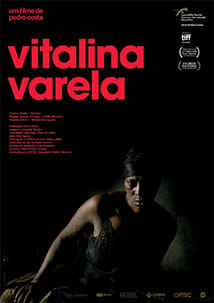 Release Date: February 20, 2020
Release Date: February 20, 2020
Director: Pedro Costa
Stars: Vitalina Varela, Ventura, Manuel Tavares Almeida
Genre: Drama
Rating: NR
Runtime: 124 minutes
If black defines the visual tone in Vitalina Varela, stillness provides the picture’s structure. Portuguese master Pedro Costa shot Vitalina Varela using an aspect ratio close to the Academy ratio (1.33:1 instead of 1.37:1); the result is a movie almost squarely framed, and from that comes the feeling of being hemmed in. There’s very little room to breathe, much less move around; the images do move, but so slowly and so haltingly that they practically read as still anyways.
Life in Lisbon’s utterly devastated Fontaínhas shantytown is a parade of smothered humanity. Residents march, shamble and occasionally lie prone on the ground, faith depleted, energy drained. Why anyone would return here after spending decades away is a question Costa answers within its first 10 minutes, when the title character, named for the actress who plays her, touches down on the tarmac and is immediately met with bad news. “Vitalina, you arrived too late,” one of the airport workers serving as the welcome wagon tells her. “Your husband was buried days ago. There is nothing in Portugal for you.” Vitalina’s angry. She’s heartbroken. For 40 years, she lived alone in Cape Verde, her husband, Joaquim, having abandoned her. Now, at long last able to reunite with him, she finds that she’s inherited the mess—worldly and spiritual—he left with his passing: the house he built for them, but also the demons he collected over the course of their separation. Each person who comes to Vitalina’s door has demons of their own, too, and no one the audience meets is free from grief, the emotion for which the movie’s pervading darkness functions as an avatar: There’s nothing here for Vitalina other than the task of reconciliation. Withstanding the procession of Vitalina Varela’s suffering requires patience and endurance, but maybe the way Costa and Varela explore grief’s every nook and cranny will yield unexpected relief from our own. —Andy Crump
Where to Watch: Available through Grasshopper Film’s Virtual Screening Room, sharing proceeds with local, independent theaters across the country
The Whistlers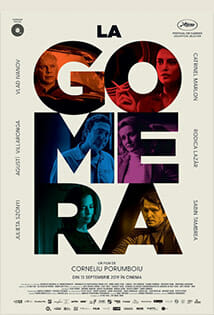 Release Date: April 3, 2020 (US)
Release Date: April 3, 2020 (US)
Director: Corneliu Porumboiu
Stars: Vlad Ivanov, Catrinel Marlon, Sabin Tambrea, Rodica Lazar, Agusti Villaronga
Genre: Drama, Thriller, Comedy
Rating: R
Runtime: 97 minutes
Director Corneliu Porumboiu is no stranger to procedures or regulations, nor insensitive to the ways in which the strictures we impose on ourselves and others end up wrapping us up from within. His previous film, the documentary Infinite Football, allows his friend Laurentiu Ginghina time and cinematic space to explain the many modifications and new rules to enact in order to, he believes, completely revitalize the sport of football—all while exorcising the trauma of post-Communist Romania. The crime drama, then, is a genre particularly suited to Porumboiu’s concerns, and his latest, The Whistlers, appears as much a pulp exercise as a stylish deconstruction of social order in all its forms, from the institutions of justice to the basic tenets of language. In it, laconic, mild-mannered cop Cristi (Vlad Ivanov) navigates an elaborate schema of criminal enterprise and double-crossing police to walk away with a life-changing amount of stolen drug money. The key to much of the film’s convolution can be found on La Gomera, in the Canary Islands, where Cristi learns a native whistling language called El Silbo in order to clandestinely communicate with archetypal folks like Gilda (Catrinel Marlon), the girlfriend of Zsolt (Sabin Tambrea) who owns a mattress warehouse through which he’ll abscond with money stolen from mob boss Paco (Augusti Villaronga), all while avoiding Police Chief Magda (Rodica Lazar), Cristi’s boss and another remnant of Communist Romania left to her own self-serving motivations. Though Porumboiu recalibrates a typical neo-noir plot by playing with chronologies and perspectives, adding a dose of pitch-black humor to leaven the film’s ostensible bleakness—and cinematographer Tudor Mircea’s shots of the Spanish coast are something to behold—rather than amounting to placeholders lost in a twisty plot twisted for the sake of it, Porumboiu’s many players survive the chaos. They are defined by it. We understand who these people are through the ways in which they struggle to escape the system. And by the time we’ve untangled the film’s plot, we’re offered a final moment of catharsis, a sense—after 90 minutes of state-sanctioned violence and depravity—of what freedom feels like. —Dom Sinacola
Where to Watch: Available on Amazon, Google Play, YouTube, iTunes and Vudu
The Wild Goose Lake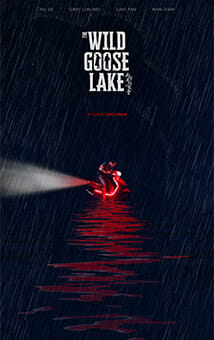 Release Date: March 6, 2020
Release Date: March 6, 2020
Director: Diao Yinan
Stars: Hu Ge, Kwai Lun-Mei, Liao Fan, Regina Wan, Huang Jue, Dao Qi
Genre: Drama, Thriller
Rating: NR
Runtime: 117 minutes
We know where this is going: A neo-noir shot through with romantic fatalism and impressionist hints of ultra-violence—think Nicolas Winding Refn’s Gosling duology without the primordial fear of sex—Chinese director Diao Yinan’s fourth feature may feel only surface-deep, but oh the inevitability that thrives beneath its rain-soaked neon and pouty protagonist. Noir tropes abound (wreaths of cigarette smoke pumping from the lungs of hopelessly beautiful riff-raff; rain; double- and triple-crosses; helplessly saturated colors obscuring post-industrial collapse) as the fate of gangster Zhao Zhenong (Hu Ge), linked inextricably to sex worker Liu Aiai (Gwei Lun-mei), avoids both a happy conclusion and, somehow, Chinese censors. We know where this is going, but we’re seduced regardless by the director and cinematographer Dong Jinsong’s oneiric mise-en-scene. A brawl among bikers in a dingy cellar plays out like a forgotten memory, images hewed down to their bones and lit with second sense; a chase through a zoo feels like a prelapsarian hallucination, animals appearing to stare blinklessly on the follies of man. Another man loses his head quite brutally, a punchline too grisly to find funny. In The Wild Goose Lake’s starkest moments, silliness shakes hands with tragedy, betraying the desperation at its heart. We know where this is going; we’re unable to turn back. —Dom Sinacola
Where to Watch: Available through Film Movement’s Virtual Screening Room, sharing proceeds with local, independent theaters across the country
Zombi Child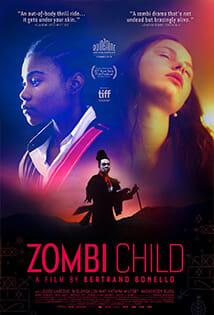 Release Date: January 24, 2020
Release Date: January 24, 2020
Director: Bertrand Bonello
Stars: Louise Lebeque, Katiana Milfort, Mackenson Bijou, Wislanda Louimat
Genre: Drama, Horror, Thriller
Rating: R
Runtime: 103 minutes
What does and doesn’t constitute cultural appropriation? Tracking down your classmate’s mambo aunt and begging her, in between offering her wads of money, to cast a voodoo spell on your pretty boy ex? French filmmaker Bertrand Bonello’s latest picture, Zombi Child, is half historical account, half racial reckoning—entirely ambitious, and equally as ambiguous. Bonello is white, just like Fanny (Louise Labeque), his bratty, lovesick protagonist, a student at the Légion d’honneur boarding school, which Napoleon established for the purposes of educating the daughters of men awarded the, well, the Légion d’honneur, and where entry remains a hereditary right. To her, voodoo is a means to an end, that end being that Pablo (Sayyid El Alami), her beau, has his soul bound to hers. To Katy (Katiana Milfort), a Haitian voodoo priestess, and to Mélissa (Wislanda Louimat), Katy’s niece and Fanny’s literary sorority sister, it’s a spiritual discipline, an aesthetic and a way of life, rich with beauty but carefully marked by caution signs to keep practitioners from making decisions they’ll regret. Zombi Child treats voodoo as a character in its own right, a living organism to be revered and not screwed around with. Naturally, Fanny’s first instinct upon hearing of Mélissa’s ancestry and her connection to voodoo is to try and screw around with it, as if voodoo is a class of magic in D&D rather than a set of syncretic religions practiced in the Dominican Republic, Haiti, Louisiana and Brazil. Mélissa tries educating Fanny and her friends on what voodoo means to her as the granddaughter of Clairvius Narcisse, on whose life Zombi Child is based: In 1962, Narcisse (played here by Mackenson Bijou), died, was buried, then returned to life as a zombie, meaning he was actually mickeyed with a melange that made him seem dead, buried alive, then dug up by plantation owners who forced him to harvest sugar cane as their stupefied thrall. Zombi Child isn’t a horror movie. It does, however, take notes from horror grammar, and the audacity of Bonello’s filmmaking is enough to inspire madness. But the heart that drives Zombi Child forward beats in the pursuit of cultural justice. The film wrestles with identity, and with whiteness especially, and with France’s reputation as an icon of revolution alongside its unflattering reputation as a colonial power guilty of inhuman atrocities. The conclusions Bonello draws are inevitably vague, but the most important message is obvious: That’s cultural appropriation. —Andy Crump
Where to Watch: Available through Film Movement’s Virtual Screening Room, sharing proceeds with local, independent theaters across the country